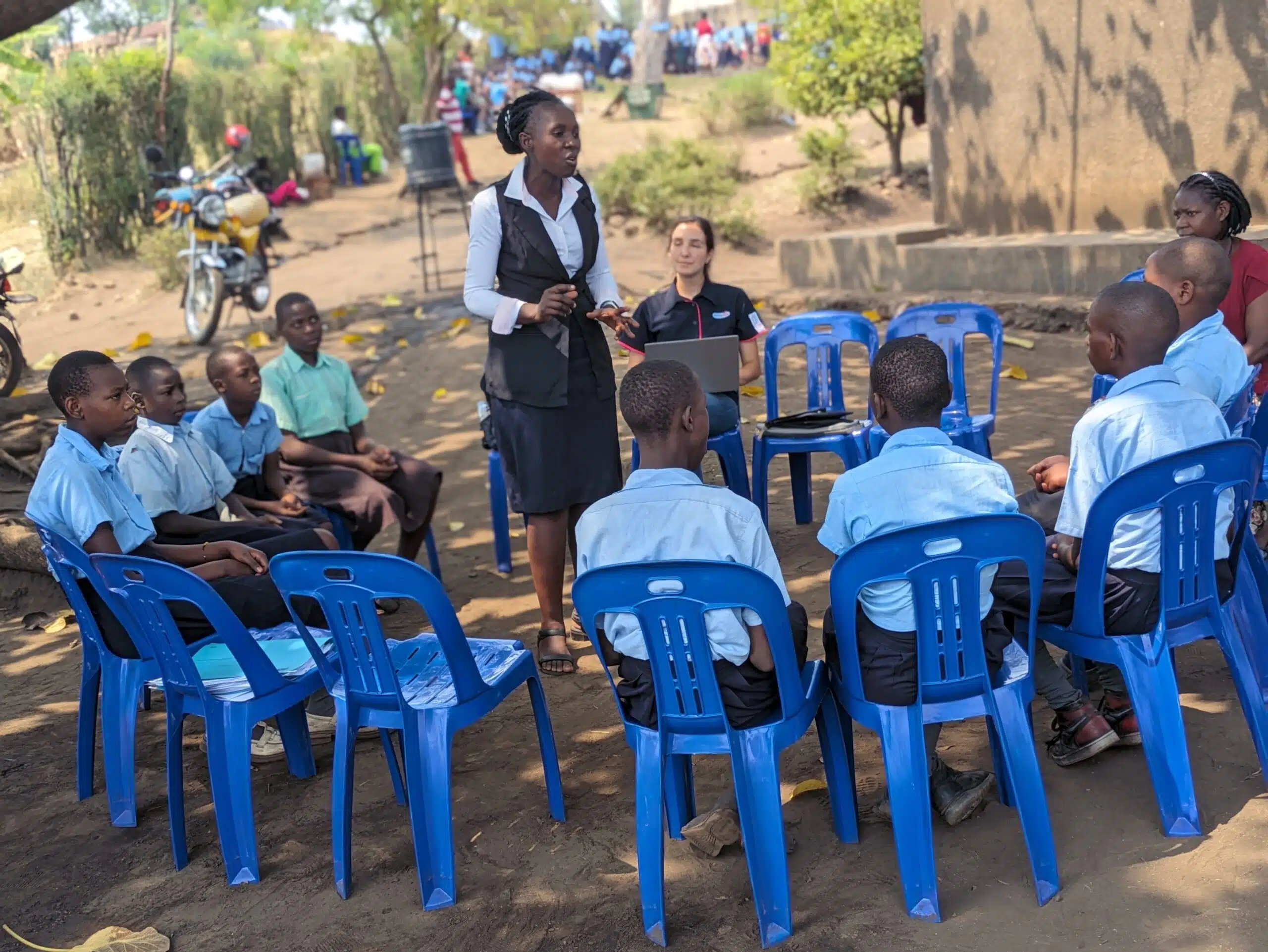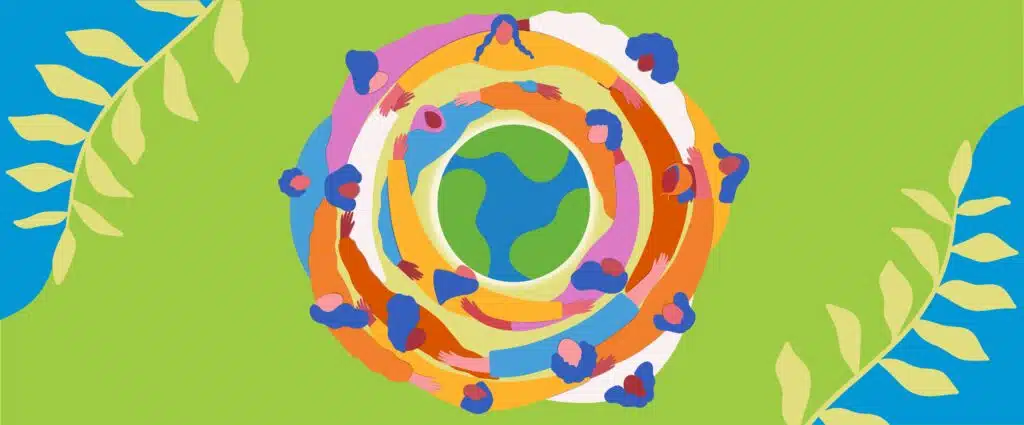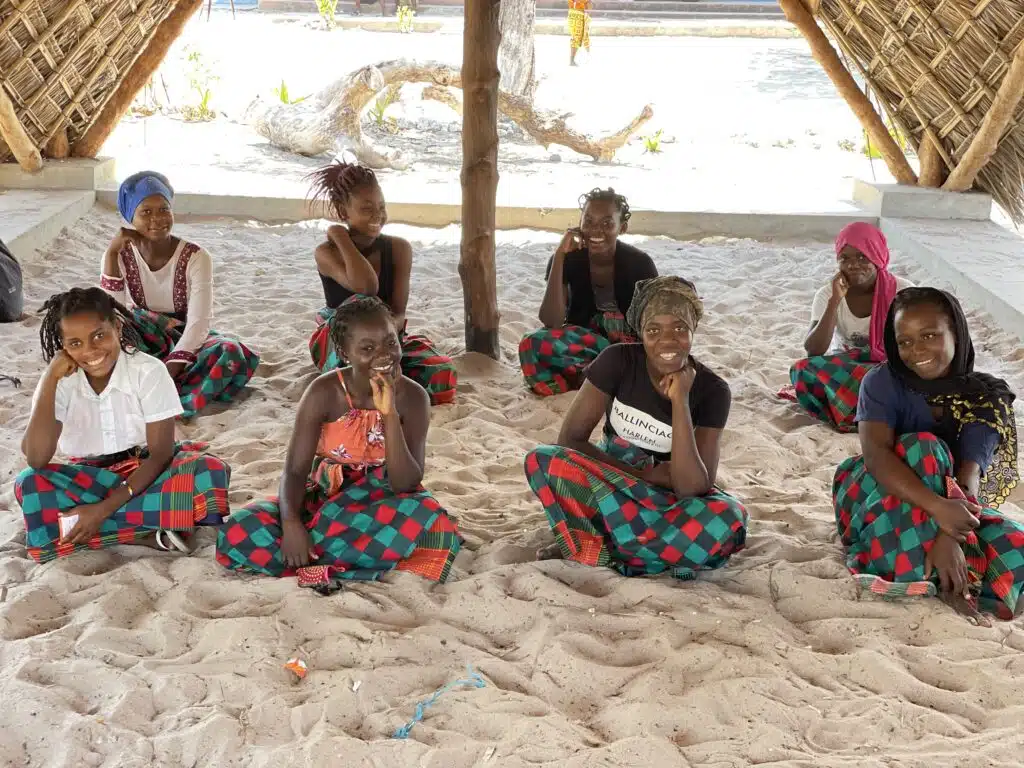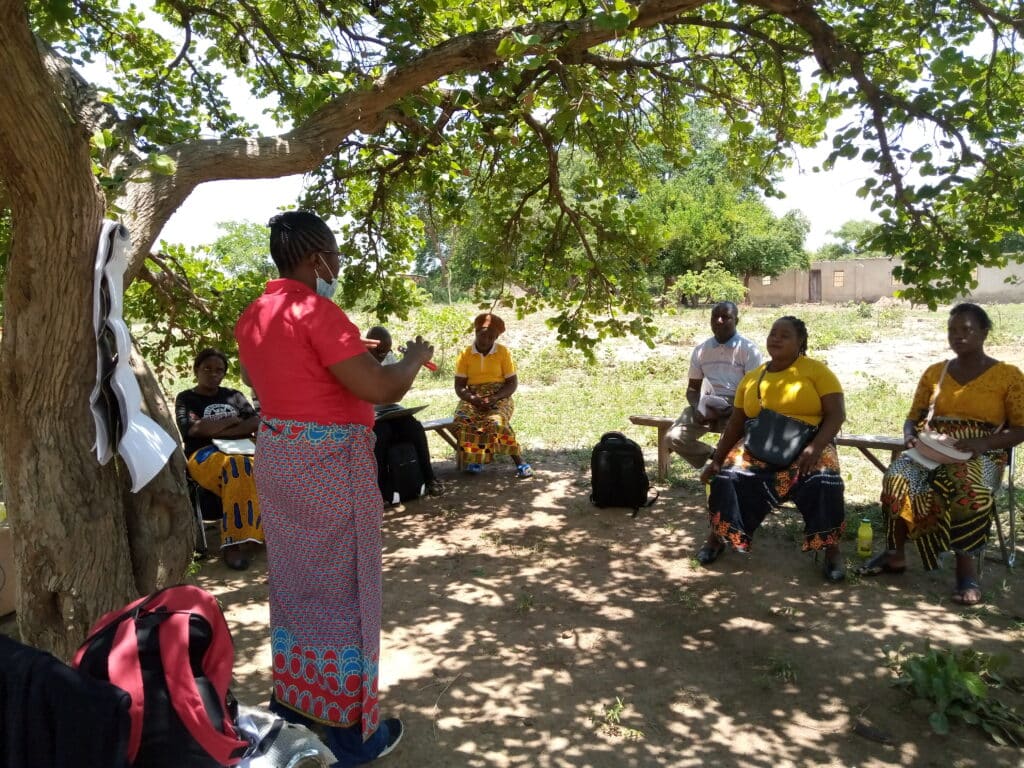“One morning, I noticed blood on my skirt. Panicked, I washed it off and decided not to go to school,” Hilda Kezabu shared. “I stayed home for two days, in pain and feeling ashamed.” Despite learning about menstruation in school, Hilda’s first period was still a terrifying experience.
Her story is just one of many. In Bunyangabu district, girls face many challenges when it comes to menstruation. Not only do they have limited access to menstrual products, period anxiety is never far away.
Recently, AFRIpads, with support from the AFRIpads and Contribute Foundations, in collaboration with SHARE at Kyakatabazi Primary School in Uganda, conducted a focus group discussion on menstrual health. During the discussion with 10 girls and 2 teachers, it became clear that many experience fear and shame during menstruation.
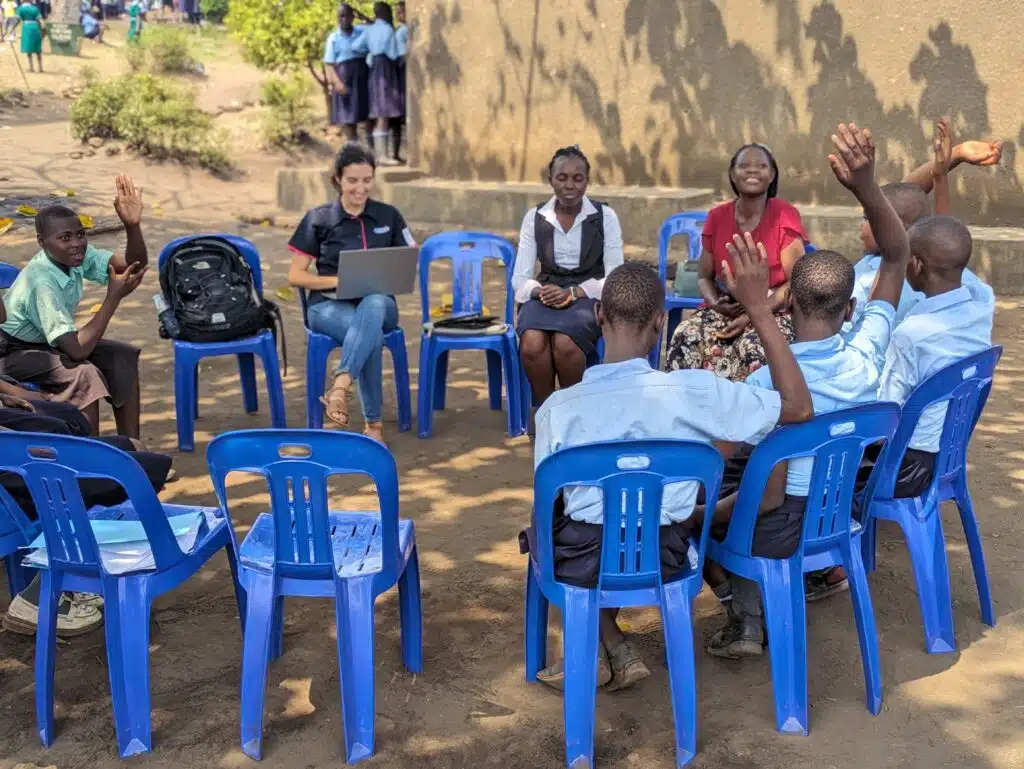
Pupil Rosette shared, “I still worry about blood leaking at any moment, even after my first period.” The lack of emergency pads at school only adds to the stress. Some girls also face ridicule from their classmates when blood stains their clothes. Pupil Racheal Natukunda said, “The boys at school laughed when they saw the blood on my skirt.” This behavior is called period shaming and it can limit girls’ potential and ability to fully participate in school and community activities.
When girls don’t have access to pads, they resort to unsafe methods to manage their periods. Pupils mentioned using old clothes or handkerchiefs as makeshift pads, which raises health concerns. Most girls had only two to three pairs of underwear, which are not sufficient to manage periods.
That is why Contribute Foundation, AFRIpads, and partners gave the girls a total of 665 Reusable Pads, Underwear, and Girl Talk Booklets. The girls expressed a preference for reusable pads because, as one girl noted, “they are comfortable, prevent leaks, and can be washed and reused.”
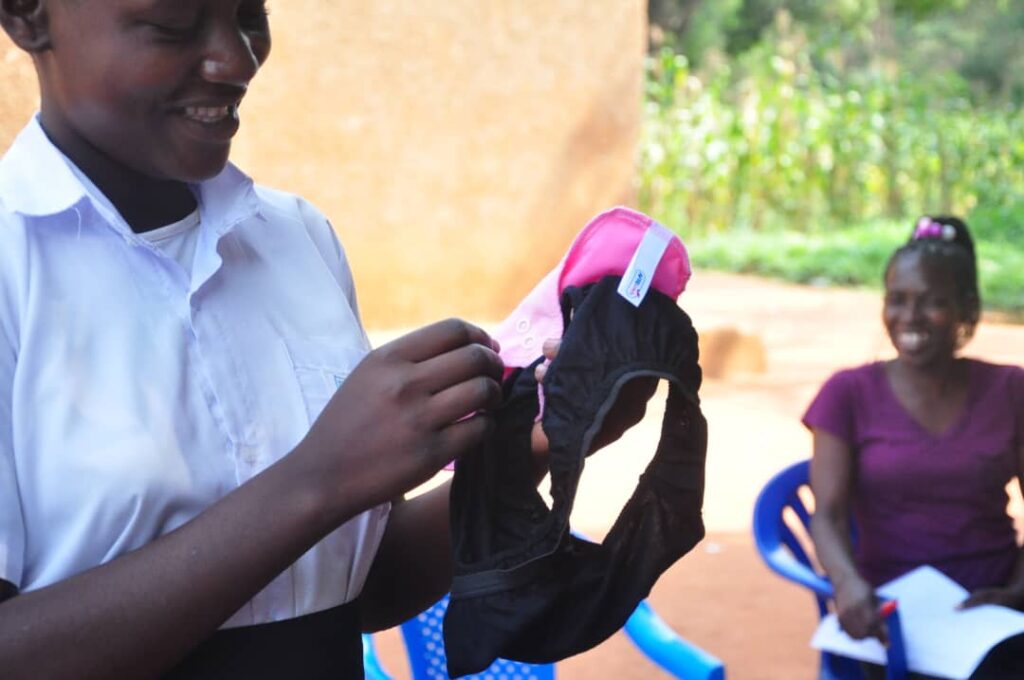
The pupils also recommended creating a “pad bank” at school, where they could access pads when needed. To ensure lasting change, AFRIpads trained teachers on menstrual health and hygiene and will set up a pad bank with Contribute Foundation at the school, managed by the grassroots organization SHARE.
To tackle menstrual challenges, parents, teachers, and pupils in school must understand menstrual health and hygiene. And of course, pupils must have access to the products that they need. It’s not just about providing pads—it’s about ensuring that girls can manage their periods with dignity, free from fear and shame.
